24. How Do We Defeat the Top Seven Myths about The Chronicles of Narnia? Part 1
Podcast: Play in new window | Download (Duration: 50:50 — 47.9MB) | Embed
Is Man A Myth? asks a book belonging to Mr. Tumnus, a Faun from C. S. Lewis’s The Chronicles of Narnia series. Yet Christians have our own myths about Narnia. Today we begin to explore a total of seven myths about Lewis’s famed fantasy world.
Myth 7: “The Chronicles show random myths.”
This is a more academic idea, and it goes something like this:
- “C. S. Lewis, unlike Tolkien, was mostly messing around in his world-making.”
- “He throws in all Greek creatures, plus other fantasy elements, at random.”
- “And then, lo, Father Christmas comes bounding in besides.”
- Scholars say: “Yeah, this isn’t like Tolkien. It’s just random. Fun, but random.”
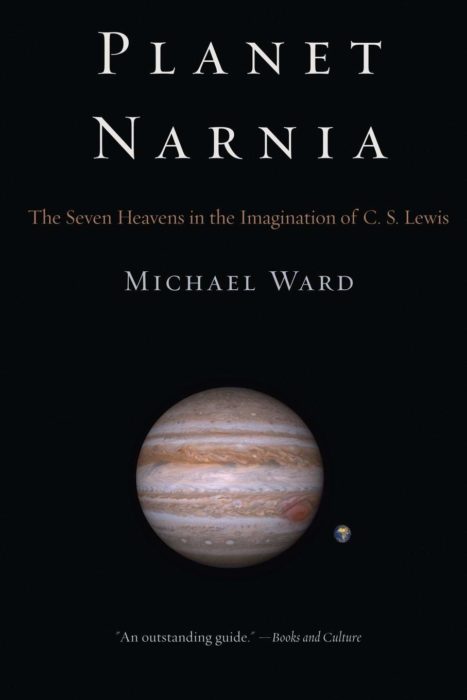
Michael Ward in Planet Narnia engages a lot with this idea.
- Ward has a grand awesome theory about each of the seven Chronicles.
- He believes Lewis, a medieval scholar, was “influenced” by overarching myths.
- These myths were about the seven worlds or spheres of medieval cosmology.
- Each planet (including Sol or sun, and Luna/moon) has ideas, images, and colors.
- Medieval literature and worldview all supported these cosmological associations.
- For instance, The Lion … is very “Jovian,” about joy, kingliness, and summer.
- The Horse and His Boy is very “Mercurian,” with speed and images of silver.
- Lewis wasn’t a random person. Not at all. Not even when he seems to be.
- Ward does a lot of academic wrangling to support his theory (which is plausible).
- Some challenges: “By Jove!” occurs in all Chronicles. Each one influences the other.
- Ward accepts this broad influence, but says each story has its own planetary theme.
- Stephen believes he’s right, because of Lewis’s (as creator’s) own subconscious.
- As a writer, your knowledge will get into your stories before you even know it.
- Later, perhaps, Lewis started to get more organized about developing these themes.
- After all, Lewis did end up with seven books, the exact number of medieval “spheres.”
- The best proof? The Last Battle is “Saturnine.” Draft had Saturn, not Father Time.
Even apart from the Planet Narnia idea, Narnia isn’t just random myths.
- The whole Narnian idea is that all these myths somehow “leaked” into the real world.
- (You have to bend time a bit, though. Greek myths predate Narnia’s creation!)
- But if the big idea is that Aslan is lord of all myths, and all serve him … ?
- Well then, that’s the greatest idea: before Christ, all myths say “hail the King.”
- It seems this may be lost on some scholars who don’t get Aslan’s central role.
- Especially given the stories’ first audience, children, this is a fantastic approach.
Myth 6: “The Chronicles are just children’s stories.”
This myth is more based on the little phrases Christians and other readers say.
- Too often we minimize this series as, “C. S. Lewis’s children’s stories.”
- We might presume fantasy altogether is foremost for children.
- This leaves open a silly “grown-up” idea that adults must be Realistic.
- Lewis, of course, not only implicitly but explicitly rejected this myth:
Critics who treat ‘adult’ as a term of approval, instead of as a merely descriptive term, cannot be adult themselves. To be concerned about being grown up, to admire the grown up because it is grown up, to blush at the suspicion of being childish; these things are the marks of childhood and adolescence. And in childhood and adolescence they are, in moderation, healthy symptoms. Young things ought to want to grow. But to carry on into middle life or even into early manhood this concern about being adult is a mark of really arrested development. When I was ten, I read fairy tales in secret and would have been ashamed if I had been found doing so. Now that I am fifty I read them openly. When I became a man I put away childish things, including the fear of childishness and the desire to be very grown up.
—C. S. Lewis, found in “On Three Ways of Writing for Children,” collected in Of Other Worlds
- This isn’t just a Lewis idea but a biblical idea. Jesus endorsed childlike faith.
- He didn’t endorse childlike thought, but childlike “faith.”
- We must have mature minds like adults, but keep the faith and heart of a child!
- Childlike faith and reception to wonder are essential to our growing as Christians.
- So for anyone who says, “I read Narnia as a kid”? Read it again. Be blessed!
Myth 5: “There’s only one best reading order (chronological).”
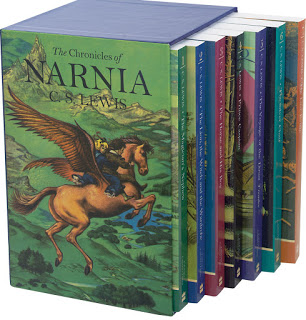
Note this box set’s chronological order, with The Magician’s Nephew being book 1, and The Horse and His Boy being book 3.
Among Narnia nerds (and some scholars), it’s funny how controversial this debate can be.
- This myth says, “Well, Lewis originally wrote the Chronicles this way. …”
- “But now we ought to read them in chronological order.”
- The publisher actually numbers them that way now. (Stephen re-sorts those.)
- Sometimes they say, “Well, Lewis himself wanted them read that way.”
- Stephen was once a NarniaWeb forum moderator. They have a great article about this.
For many years, both orders were in print. American editions used publication order while British editions were numbered chronologically.
Chronological order became the worldwide standard after HarperCollins took over the publishing in 1994. …
The Lion, the Witch and the Wardrobe, the first book to be written and published, is generally considered the best introduction to Narnia by scholars and fans alike.
“Most scholars disagree with [the decision to re-number the books] and find it the least faithful to Lewis’s deepest intentions,” says Dr. Paul F. Ford, author of Companion to Narnia.
On the official website of C. S. Lewis, Dr. Charlie W. Starr claims that “Lewis scholars almost universally agree” that the original published order is superior. He suggests that The Lion, the Witch and the Wardrobe is more initially captivating than The Magician’s Nephew, that certain lines in Lion do not make sense when the book is not read first, and that Nephew has greater mythic power when read as a prequel.
—from “Narnia Reading Order,” author uncredited, date unknown, NarniaWeb.com
- But what about the argument that this is what Lewis always wanted?
- Lewis wrote a lot of letters. Sometimes you can just “make him say” things.
- NarniaWeb quotes Lewis’s 1957 letter to a single boy named Lawrence Krieg.
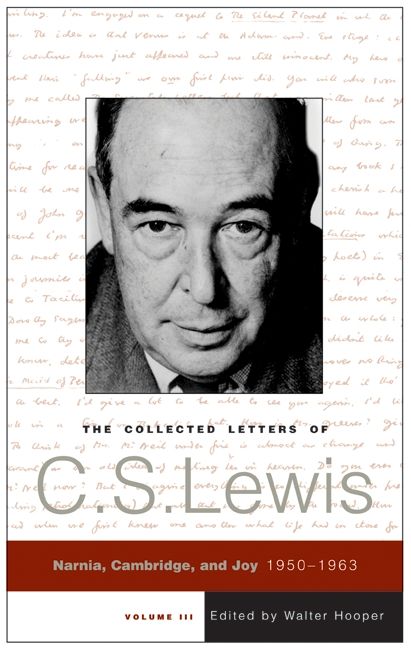
In 1957, an 11-year-old boy named Lawrence Krieg was preparing to read the Narnia books for a second time. Lawrence wondered if he should re-read them chronologically, but his mother felt he should stick with the original published order. So, Lawrence wrote a letter to the author and received this response:
“I think I agree with your order for reading the books more than with your mother’s. The series was not planned beforehand as she thinks. When I wrote The Lion I did not know I was going to write any more. Then I wrote P. Caspian as a sequel and still didn’t think there would be any more, and when I had done The Voyage I felt quite sure it would be the last. But I found as I was wrong. So perhaps it does not matter very much in which order anyone read them.”
—”Narnia Reading Order,” author uncredited, date unknown, NarniaWeb.com
- That’s it. That’s the only “proof” that Lewis only wanted chronological order.
- These arguments do bust the myth of insisting only on chronological order.
- Reading The Magician’s Nephew, you’re meant to have read The Lion … at least once.
- That’s not to say chronological order is bad! Just that it’s not the only order.
- Douglas Gresham, Lewis’s stepson, admits to have started the chronological order.
- So, there are two ways to read Narnia. But not only the chronological order way.
- After reading them once, of course, you can just read them in any order you wish!
Fantastic fans
Brian wrote about episode 22:
I think that your worldview always shapes your interpretation of what is happening in the world. If you believe in the potential of aliens, you will look at UFOs as likely alien in nature. If you believe aliens are not possible, you will look at other potential sources for UFOs.
I also think there is a big difference between life and sentient life in the discussion of aliens. At creation, humans were never intended to die. Had we stayed in that state, Earth would have quickly become overpopulated. We would have had to go somewhere. With that in mind, there HAS/HAD to be life on other planets for us to be able to expand and not overburden Earth. I believe it was part of God’s plan for us to expand into the cosmos and that there would be entire ecosystems on other planets for us to use when we got there. But that doesn’t mean there was necessarily sentient life. I think Christians can claim and rejoice in the idea that there is life on other planets. But I think we can also expect that we will never find any life out there that is sentient.
@JosiahDeGraaf, editor at StoryEmbers.org, tweeted:
One of the perks of re-organizing my school’s library lately has been the ability to catch up on @Lorehaven ‘s Fantastical Truth podcast while doing so. Great podcast for fellow lovers of speculative fiction!
Subscribe to Lorehaven
- Our Narnia article appeared in our spring 2020 issue‘s cover story.
- Our summer 2020 issue is out. You can get it free at Lorehaven.com.
- Subscribe for free by email and get every issue and occasional news/reviews.
- We’re also posting from our massive review collection, daily this summer.
Next on Fantastical Truth
Next on Fantastical Truth, we’re finishing this series with more myths:
- Queen Susan “fell away” and will never return to Narnia again.
- Emeth in The Last Battle reveals that C. S. Lewis was a universalist.
- The Chronicles portray simple “allegories” for Jesus, Satan, and others.
- Lewis’s world is safer for children than all that other fantasy magic.
“Further up and further in!”

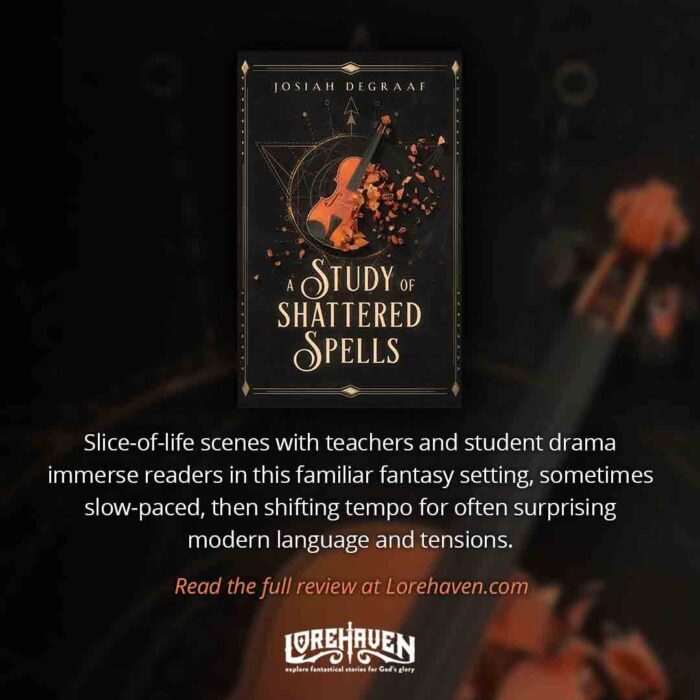



























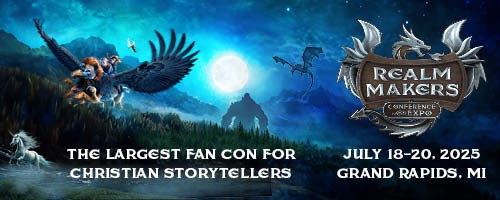
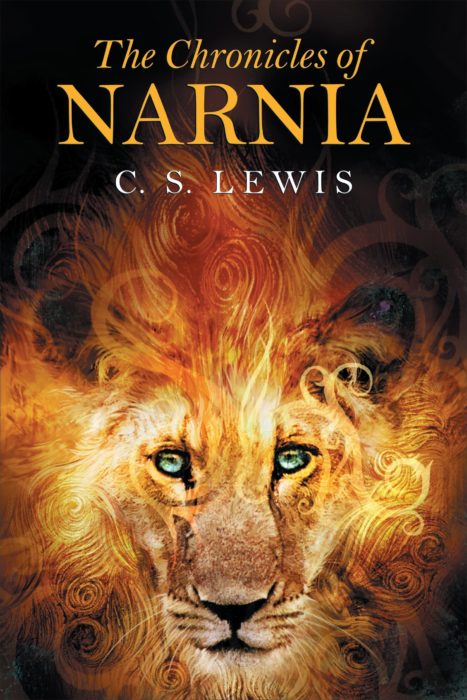



Share your thoughts about this podcast episode